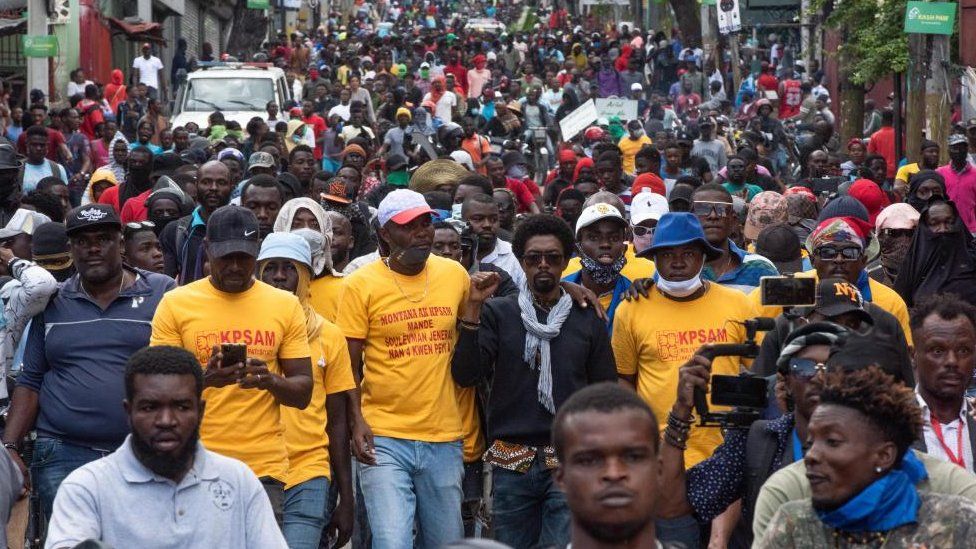Following three days of protests demanding his resignation, Haitian Prime Minister Ariel Henry delivered a public address, calling for calm and unity in the midst of the country’s turmoil.
In his early morning speech, PM Ariel Henry acknowledged the grievances of the populace, expressing understanding towards their frustrations concerning ongoing gang violence, pervasive poverty, and the absence of a clear electoral roadmap.
Mr. Henry believed that the time has come for them to unite and find alternative solutions for the betterment of Haiti, albeit without specifying concrete strategies.
He implored citizens not to perceive the government or the Haitian National Police as adversaries, emphasising that resorting to violence and bloodshed for political gain is detrimental to the nation’s interests.

With Haiti’s legislative branch currently vacant since January 2023 and previous attempts at holding elections thwarted in 2019 and 2023, Henry assumed power in the aftermath of President Jovenel Moïse’s assassination in July 2021, garnering support from the international community.
Despite Henry’s plea for tranquility, thousands of Haitians continued to mobilise across cities and towns, demanding his immediate resignation until he acquiesces.
Protesters utilised makeshift barricades of tree branches, burnt-out vehicles, and flaming tyres to obstruct thoroughfares, leading to clashes with law enforcement, who responded with tear gas and live ammunition.
The escalating demonstrations prompted the temporary closure of over 1,000 schools, along with the suspension of banking services, governmental operations, and commercial activities.
Moreover, critical humanitarian aid delivery faltered amidst the chaos, exacerbating food shortages, with prices soaring by over 20% in certain regions due to supply chain disruptions.
Amidst the unrest, a tragic event unfolded on Wednesday as police fatally shot five armed environmental protection agents in Port-au-Prince, heightening tensions and concerns for further destabilisation.
Addressing the incident, Lionel Lazarre, head of the police union Synapoha, reported a confrontation between law enforcement and agents from Haiti’s Security Brigade for Protected Areas in the Laboule community, alleging that the agents initiated gunfire, prompting a response.
Clashes between environmental agents and police have persisted since January, prompting Henry to announce the restructuring of the environmental agency and the dismissal of its chief.
Meanwhile, former rebel leader Guy Philippe, in a surprising appearance in Port-au-Prince, criticised the international community’s backing of Ariel Henry and rallied environmental agents to assert control in their respective regions.
In response, Haiti’s Office of Citizen Protection condemned the killings and called for an independent inquiry, denouncing attacks on press freedom as journalists faced violence while covering the protests.
Despite the ongoing unrest, Henry reiterated his commitment to restoring stability and democracy through forthcoming elections once security concerns are addressed.
Henry extended his condolences to all those affected by the recent violence, pledging governmental efforts to expedite the deployment of a U.N.-backed Kenyan police force to aid in restoring order.
Haitians said they wanted Henry to step down by February 7, the date Haitian leaders are typically sworn into office.


